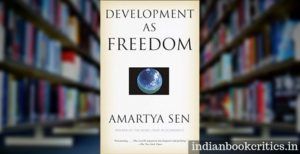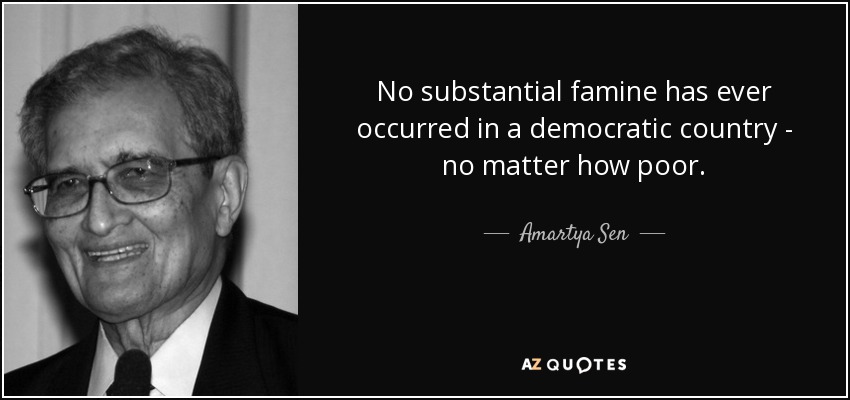

Freedom is both the primary end and the principal means of development. Insofar as many of us have been critical of approaches to development that emphasize growth in Gross Domestic Product (GDP), rising personal incomes, industrialization, technological advance, or social modernization, we should be glad that such a distinguished economist is apparently tooting our horn. Yet there are deeply troubling elements in Sen’s basic assumptions about the nature of people and his lack of a feasible prescription for reaching his stated goals that make Development as Freedom not just misguided but even rather dangerous.

Amartya Sen’s Development as Freedom has been widely praised as a way forward for a more humane society since it was published a decade ago in 1999, the year after its author won the Bank of Sweden prize in economics (otherwise known as the Nobel Prize for economics). To many, it is the standard for ethical economics, so much so that one critic laments ‘until now the issue of ethics and economics, especially in the context of development, has been dominated by Amartya Sen, almost to the extent of being a one-man show with supporting acts’ (Fine, 2004). Kofi Annan says of Amartya Sen that ‘the world's poor and dispossessed could have no more articulate or insightful a champion’. It has almost reached the point where criticizing Amartya Sen, like Mother Theresa, is out of bounds. In this critical assessment of Sen’s much lauded book, Denis O’Hearn considers its central thesis and impact on development.


 0 kommentar(er)
0 kommentar(er)
